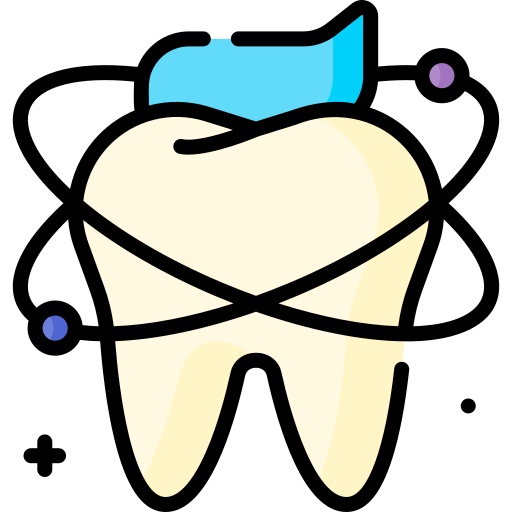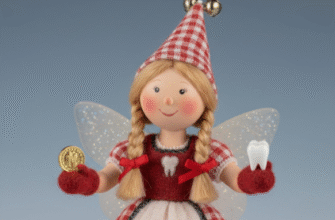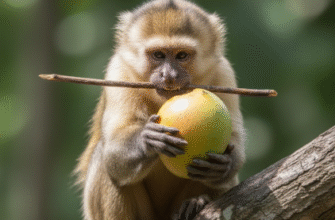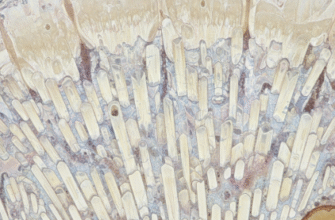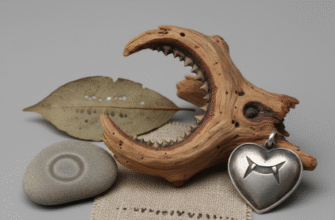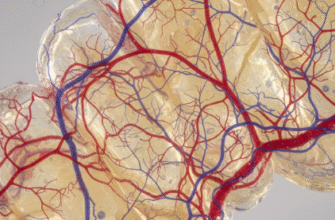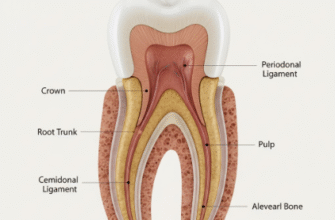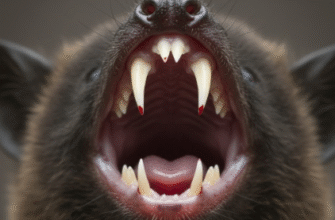Those tiny, gleaming pearls that pop up in your little one’s mouth, often accompanied by some fuss and drool, are more than just a cute milestone. We call them baby teeth, milk teeth, or deciduous teeth, and there’s a common, almost throwaway attitude towards them: “Oh, they’ll just fall out anyway.” This couldn’t be further from the truth. These first teeth are tiny titans, playing a host of critical roles in a child’s early development, influencing everything from their nutrition to their speech, and even the health of their future, permanent smile. Dismissing their importance is a disservice to the intricate work they do behind the scenes.
The Unsung Heroes: Why Baby Teeth Are VIPs
It’s easy to underestimate something that seems so temporary. Yet, these twenty primary teeth are foundational, performing tasks essential for a child’s healthy growth and for paving the way for their adult counterparts. Let’s explore just why they matter so profoundly.
Masterful Space Managers
Perhaps one of the most critical, yet often overlooked, functions of baby teeth is their role as natural space maintainers. Think of them as diligent little placeholders, meticulously reserving the correct amount of room in the jaw for the permanent teeth that are quietly developing beneath the gums. Each baby tooth holds a specific spot for its successor. If a baby tooth is lost too early – whether due to decay, injury, or other reasons – the neighboring teeth can drift into the empty space. This can cause a traffic jam for the incoming permanent tooth, potentially leading to it erupting crooked, becoming impacted (stuck), or causing crowding. This early loss can mean a greater likelihood of needing orthodontic work later on to correct alignment issues that might have been prevented.
Fueling Growth: Chewing and Nutrition
Those little chompers are crucial for proper nutrition. As babies transition from milk or formula to solid foods, their teeth allow them to bite, tear, and grind a wider variety of foods. This isn’t just about enjoying different tastes and textures; it’s about accessing a broader range of nutrients essential for their rapidly growing bodies and brains. Well-chewed food is also easier to digest, ensuring that your child can absorb the maximum goodness from their meals. If chewing is painful or difficult due to dental problems, a child might avoid certain healthy foods, potentially impacting their nutritional intake and overall development.
Little Chatters: The Role in Speech
Listen closely to a child learning to talk, and you’ll realize how much their teeth are involved in forming sounds. Teeth, along with the tongue and lips, are vital for clear articulation. They help shape the airflow and provide contact points for the tongue to produce specific sounds like “th,” “f,” “v,” and “s.” Missing or poorly positioned baby teeth can sometimes lead to temporary speech difficulties or the development of lisps. While many factors contribute to speech development, healthy, present baby teeth certainly play their part in helping children master those tricky apprentice words and express themselves clearly.
Shaping Smiles: Facial Development
Baby teeth also contribute to the normal development of a child’s facial muscles and jaw bones. The act of chewing helps stimulate bone growth in the jaw, providing a strong foundation for the permanent teeth. The presence of teeth helps support the structure of the face and lips. While subtle, their role in guiding the growth of the facial architecture is another reason they are so important during these formative years.
Building Blocks for Future Dental Wellness
The health of baby teeth can directly impact the health of the permanent teeth that follow. Severe decay in a baby tooth can lead to an infection, known as an abscess, at the root. This infection can potentially damage the developing permanent tooth bud lying beneath it. This might result in discoloration, a weaker enamel structure, or even malformation of the permanent tooth. Establishing good oral hygiene habits early on, while caring for baby teeth, sets a precedent for a lifetime of healthy smiles. It teaches children the importance of looking after their teeth before the “big” ones even arrive.
Essential Info: Primary teeth, also known as baby teeth, are the first set of teeth in human development. There are typically 20 primary teeth, which usually begin to appear around six months of age and are all present by age 2.5 to 3. These teeth are not just smaller versions of adult teeth; they have thinner enamel, making them more susceptible to wear and decay.
Busting Common Myths About Milk Teeth
Despite their significance, several misconceptions persist about baby teeth, leading some parents to be less vigilant about their care than they might be for permanent teeth.
Myth 1: “They just fall out, so decay doesn’t matter.”
This is perhaps the most damaging myth. As we’ve seen, decay in baby teeth is far from trivial. It can cause pain and discomfort for the child, making eating and sleeping difficult. It can lead to infections that can spread and affect overall health, not just the developing permanent teeth. Furthermore, if a decayed tooth needs to be extracted prematurely, it disrupts the space-holding function, potentially leading to future orthodontic problems. Treating cavities in baby teeth is important to prevent these complications and maintain the child’s quality of life.
Myth 2: “Baby teeth don’t need much care until they all come in.”
Oral care should begin even before the first tooth pokes through. Wiping a baby’s gums with a clean, damp cloth after feedings can help remove bacteria and get them used to the sensation of oral cleaning. Once the first tooth appears, it’s time to start brushing. The idea that baby teeth are somehow “tougher” or less prone to problems without care is incorrect. In fact, their thinner enamel makes them more vulnerable to decay once it starts.
Nurturing Those First Smiles: A Gentle Approach
Caring for baby teeth isn’t complicated, but it does require consistency and starting good habits early. It’s about laying a positive foundation for lifelong dental health, not just for these temporary teeth but for the permanent ones that will serve them for decades.
Early Days: Gum Care and First Teeth
Even before teeth erupt, you can gently wipe your baby’s gums with a soft, moist washcloth or gauze pad once or twice a day, especially after feedings and before bedtime. This helps clean away bacteria and gets your baby accustomed to having their mouth cleaned. When that first little tooth makes its appearance, it’s time to graduate to a tiny, soft-bristled toothbrush designed for infants. Use a smear of fluoride toothpaste (about the size of a grain of rice) for children under three.
Brushing Basics and Making it Fun
Try to make brushing a positive experience. Sing a song, make funny faces, or let them hold their own (age-appropriate) toothbrush while you do the actual cleaning. Brush twice a day – once in the morning and, most importantly, before bed. As more teeth come in, ensure you’re gently brushing all surfaces. Once children are older (around age 3 to 6), they can use a pea-sized amount of fluoride toothpaste and should be encouraged to spit out the excess. Supervise brushing until you’re confident they can do a thorough job on their own, usually around age 7 or 8.
Food for Thought (and Teeth)
What your child eats and drinks significantly impacts their dental health. Frequent exposure to sugary foods and drinks, including juice, sweetened milk, and sticky snacks, can increase the risk of tooth decay. Bacteria in the mouth feed on these sugars, producing acids that attack tooth enamel. Encouraging a balanced diet rich in fruits, vegetables, and whole grains, and offering water instead of sugary drinks between meals, can make a big difference. It’s also wise to avoid letting a baby fall asleep with a bottle of milk, formula, or juice, as this can lead to “baby bottle tooth decay,” particularly affecting the front teeth.
Laying the Foundation for a Lifetime
The attention and care given to baby teeth are investments in a child’s future. These initial teeth are not just practice rounds; they are integral to a child’s ability to eat well, speak clearly, and develop a healthy jaw structure. Moreover, the habits and attitudes formed around caring for baby teeth often carry over into adolescence and adulthood. Early dental visits, usually recommended around the first birthday or when the first tooth appears, can help catch any potential issues early and provide parents with guidance tailored to their child’s needs. These visits also help children become comfortable in a dental setting, reducing anxiety about future appointments.
So, the next time you see that gummy grin transforming with the arrival of those first tiny teeth, remember their mighty purpose. They are far more than just temporary; they are the essential groundwork for a lifetime of healthy smiles. Cherishing and caring for them from the very beginning is one of the best gifts you can give your child’s long-term health and well-being.
